2024
Academy for Public Scholarship on the Built Environment:
CLIMATE ACTION
2024 Cohort: Climate Action
The Association of Collegiate Schools of Architecture (ACSA) and the ACSA Research + Scholarship Committee, in partnership with The OpEd Project and the University of Southern California Annenberg, Center for Climate Journalism and Communication, are pleased to announce the 2024 Cohort for the Academy for Public Scholarship on the Built Environment: CLIMATE ACTION.
ACSA has established an extended training opportunity for faculty to expand the impact of their research and scholarship beyond the academy. ACSA has partnered with The OpEd Project and the USC Annenberg, Center for Climate Journalism and Communication to provide training and guidance on externalization strategies. The selected architecture faculty, whose research intersects with climate action or climate justice, will establish public discourse on topics that affect real stakeholders.
In addition, ACSA will offer all its members the opportunity to join a series of climate training modules led by USC Annenberg, Center for Climate Journalism and Communication. Academics will be highly encouraged to join these training modules as well, which will focus on storytelling, media, terminology, and more.
The 2024 Cohort includes:
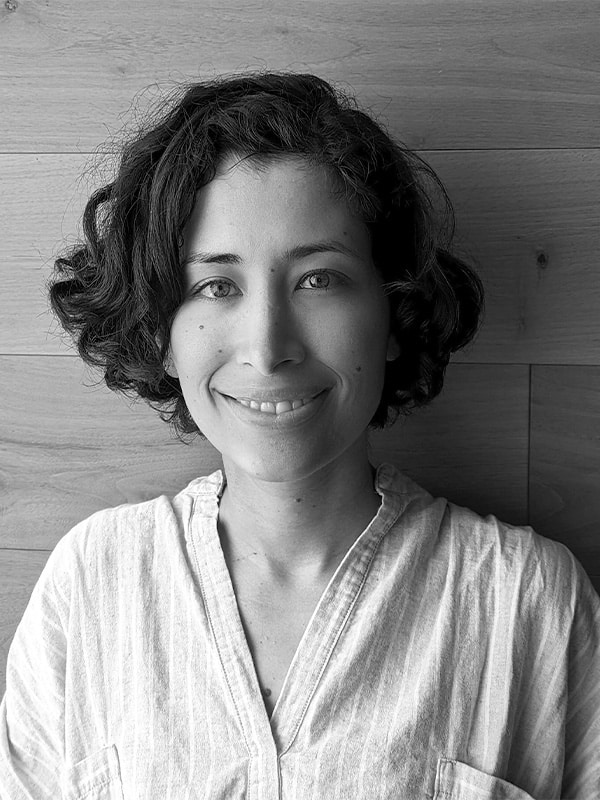
SARAH BOLIVAR
University of Tennessee
Bio
Sarah Bolivar, PLA, is an Assistant Professor of Landscape Architecture at the University of Tennessee. Her research speculates on more reciprocal human and more-than-human futures in face of biodiversity loss and anthropogenic climate change. This research focuses on species migration within and across the Americas, as well as the inedible power and impact that water plays in enabling this movement. Multisensory and participatory storytelling processes help cultivate the public imagination around multispecies coexistence and flourishing. Sarah’s research builds on her watershed conservation efforts with local government in Bellingham, WA, nonprofit design work with the Central Park Conservancy, and Rebuild by Design projects and master planning with AECOM. Previous teaching includes architectural studios through the Boston Architectural College and University of Maryland, as well as summer landscape foundations with the University of Virginia. Additionally, Sarah has led grant-funded design workshops with middle and high school students in Nepal, Japan, and the United States, cultivating how individual and collective agency can transform our built environments.
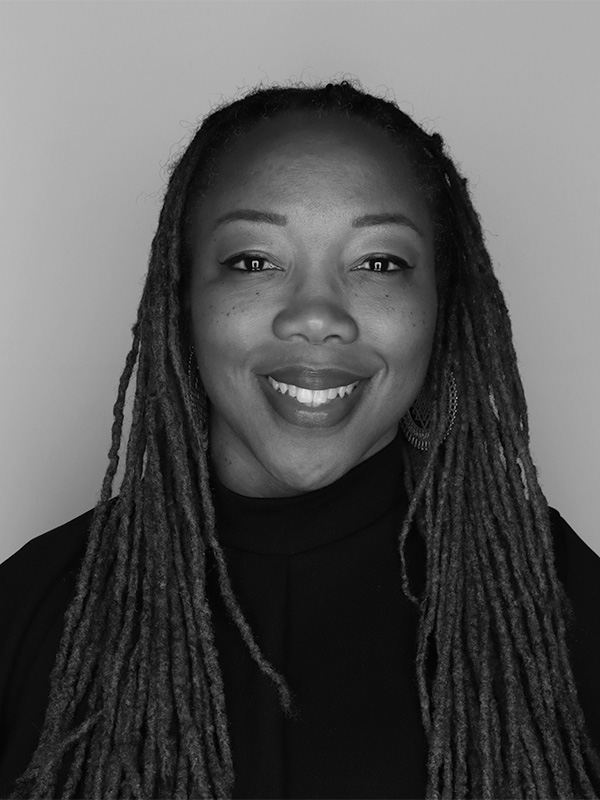
IFEOMA EBO
City College of New York
Bio
Ifeoma Ebo is a Nigerian-American, Brooklyn-based transdisciplinary designer. Ebo is Principal of Creative Urban Alchemy, an award-winning studio working at the intersection of art, architecture, urban design, and planning centering cultural heritage in praxis.
With a career spanning two decades, she is renowned for her transformative work in urban landscapes, with a keen focus on equity, justice, and design excellence. She has significantly impacted urban design and development projects, partnering with prestigious institutions like the United Nations, FIFA, and the NYC Mayor’s Office. Ebo has served on advisory boards for the Mayor of Helsingborg, Sweden H22 Smart City Initiative, Association for Community Design, New York State Energy and Research Development Authority, the New York Chapter of the American Institute of Architects, and is a founding board member of the BlackSpace Urbanist Collective. She is an Assistant Professor for Design & Sustainability at the Spitzer School of Architecture at the City College of New York where she engages in research and teaches trans disciplinary courses exploring cultural, climate, and environmental justice.
As a creative, Ebo explores her passion for visual storytelling to craft engaging design workshops and to capture her global explorations of cultural urbanism — the intersection of space, place, people, and culture. She has most recently received awards and fellowships from the Black Artists & Designers Guild, NYS Council on the Arts, the Architectural League, and United States Artists. She has exhibited her work at the Cornell University Willard Straight Gallery, MIT Rotch Library Gallery, and the Oakland Museum exhibition on Afro-futurism. She has also exhibited her work as a part of the Architectural League Shifting Ground visual archive capturing the relationship between society and the built environment during the pandemic. Ebo holds a Bachelor of Architecture from Cornell University and a Master of City Design & Development from MIT.
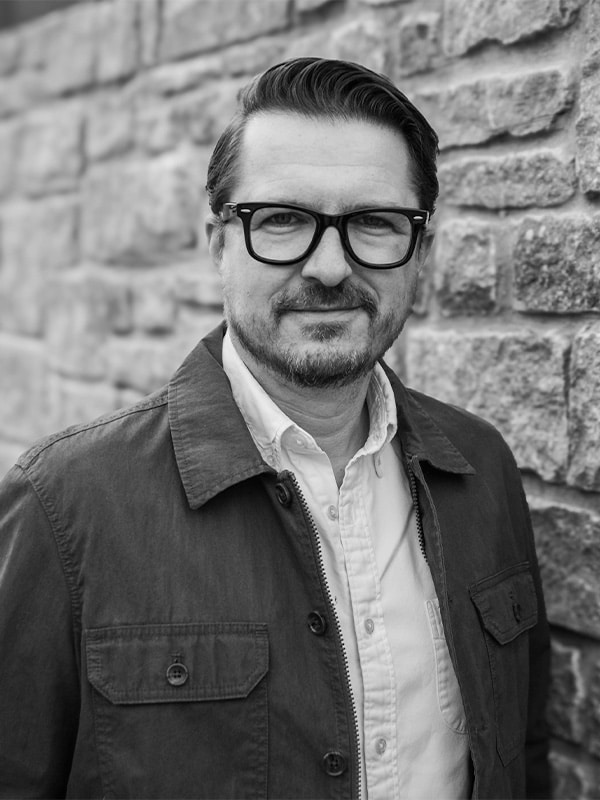
JEFF FUGATE
University of Kentucky
Bio
Jeff Fugate is an Associate Professor of Extension at the University of Kentucky’s School of Architecture. As part of the University’s Land-Grant mission, Fugate co-leads the ongoing community outreach projects Studio Louisville and Studio Appalachia. Fugate also provides studio and classroom instruction in urbanism, design-research, and housing development.
A Planner and urbanist by training, Fugate has a two-decade career in community and economic development prior to academia. With experience in both urban and rural settings, he has developed affordable housing projects, operationalized mission-based investment funds, and led the former Lexington Downtown Development Authority (LDDA) alongside Mayor Jim Gray. During his time at the LDDA, Fugate successfully instigated multiple urban development projects, including the Kate Orff-designed Town Branch Commons, Honor Award winner in Urban Design at the 2023 meeting of the American Society of Landscape Architects.
His current work applies community-engaged design solutions to contemporary social and climate-related challenges and has been funded by the National Endowment for the Arts and the University of Kentucky’s Center for Applied Energy Research and Center for Clinical and Translational Science. Recently, Fugate secured seed funding to launch a Sustainable Housing Initiative.
Fugate has a B.A. from the University of Kentucky in Geography and graduate degrees from the Massachusetts Institute of Technology in City Planning and Architectural Studies. In addition to his duties at the University, Fugate serves as Chair for the Lexington Affordable Housing Fund.
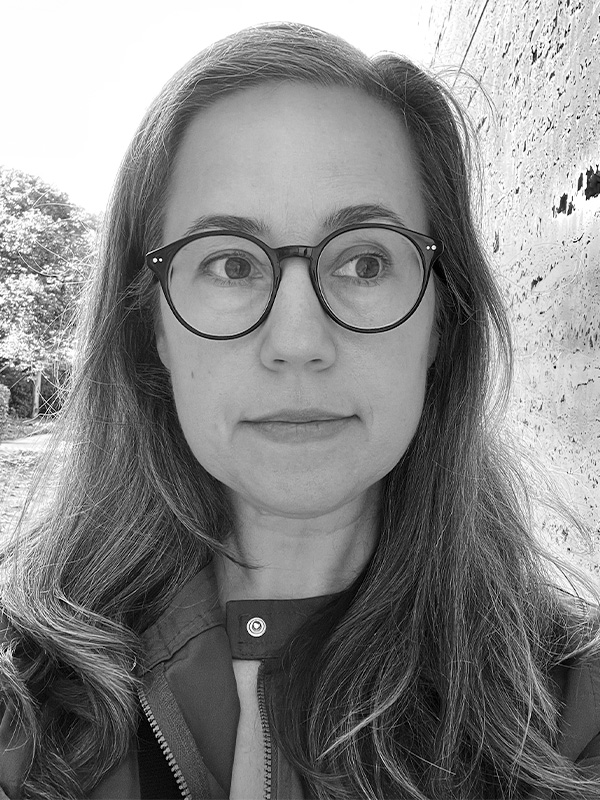
SARAH GAMBLE
University of Florida
Bio
Sarah Gamble is an architect and educator with a passion for the public realm. As an Assistant Professor at the University of Florida School of Architecture, she teaches studios and lecture courses on urban and community-based issues. She also serves as Director of the new graduate-level Certificate in Public Interest Design. Gamble’s previous professional practice includes design and advocacy work for affordable housing, disaster recovery, main street/downtown development, public art, and more. Her academic research explores the methods and tools architects use to engage and advocate for people and place within the creative process. This research highlights how architects and the public can work together to solve community problems and improve the built environment for all. With a recent focus on climate-related issues, Gamble co-authored Environmental Activism by Design with University of Texas at Austin’s Professor of Practice Coleman Coker. This research and writing challenges designers to actively engage the environmental crisis through their work, articulating an optimistic, tangible pursuit of community good and environmental justice through firsthand engagement. Gamble holds a Master of Architecture from the University of Texas at Austin with a Certificate in Non-Profit and Philanthropic Studies, and a Bachelor of Design in Architecture from the University of Florida. She also holds a Certificate in Public Participation from the International Association of Public Participation and is a licensed architect in Texas and Florida.
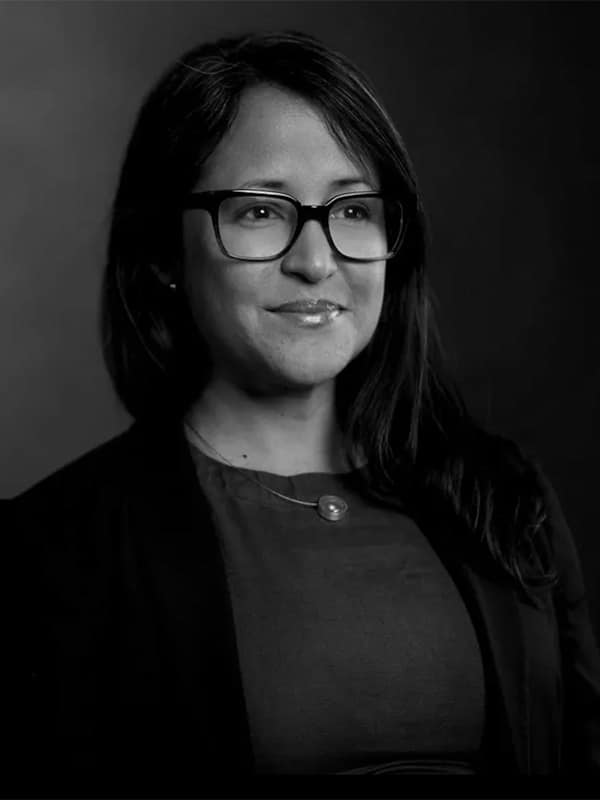
MICHELLE LABOY
Northeastern University
Bio
Michelle Laboy is Associate Professor of Architecture at Northeastern University, and co-founder of FieLDworkshop LLC, a design practice working at the intersection of ecology and culture. After completing her undergraduate degree in Civil Engineering at Universidad de Puerto Rico-Mayagüez, she earned master’s degrees in Architecture and Urban & Regional Planning at the University of Michigan, where she won the AIA Medal and Thesis Prize. Her design work ranges from interactive public installations and exhibitions to campus master plans, renovations for residential clients and cultural institutions, and only if no better choice, new construction. Michelle was twice awarded the prestigious Latrobe Prize by the AIA College of Fellows, in 2017 and 2022, for her practice-focused research on resilient and regenerative design of buildings and urban landscapes. Her current work on decarbonization, building reuse, equitable green infrastructure, and resilient public space is funded by the NSF, DOE ARPA-E, and DHS. Michelle publishes her research in journals across many disciplines, from JAE, The Plan and Enquiry in Architecture, to the Journal of Industrial Ecology. She recently co-authored the book “The Architecture of Persistence: Designing for Future Use” (2022) and is currently developing design guidelines for carbon-sequestering buildings and a playbook for community based participatory design. She was born and raised in Puerto Rico, where her parents cultivated her commitment to environmental action and a love of gardening. She currently lives and works in a historic neighborhood of Boston, in a very small and efficiently designed flat shared with her partner and young children, where they care for native flowering gardens on their roof deck and grow food in a community garden on their block. She is optimistic that we can still achieve meaningful climate action in a short time, if we all act with sufficient urgency, collective purpose, and creativity rooted in science.
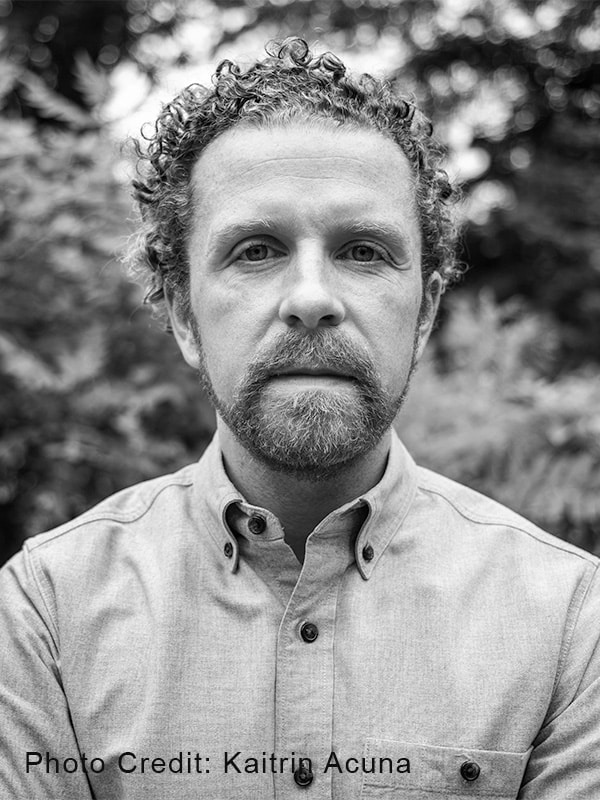
RYAN LUDWIG
Roger Williams University
Bio
Ryan Ludwig is a licensed architect, writer, and educator whose work focuses on design as a means to foster co-productive and equitable outcomes at the intersection of architecture, climate change, ecological resilience, and society. He explores these themes through critical writing, activism, and design practice, all of which inform his teaching as an Assistant Professor of Architecture at Roger Williams University.
Ludwig is the author of the book Beyond Sustainable: Architecture’s Evolving Environments of Habitation (2021) which re-conceptualizes the relationship between people and their architectural surrounds, challenging how we might better cope and adapt to the ongoing changes in the earth system. He was also a co-editor of the book The Function of Form by Farshid Moussavi, published by Actar Press (2009). Currently, Ludwig is working on his next book Architecture at the End of the World: Design Ethics in the Age of Climate Change, which confronts the inevitable world transformation initiated by the climate crisis, helping to define a new set of architectural design ethics and policy positions that promote justice and deep sustainability.
He is the recipient of an I-Park Foundation Residency (2023), an Art Omi: Architecture Residency Fellowship (2021), a MacDowell Fellowship (2019), and a Centrum Artist Residency (2018).
Ludwig is an active member and former coordinator of The Architecture Lobby’s Green New Deal Working Group whose efforts have focused on organizing for liberatory principles and ecological justice as they relate to architectural labor, the built environment, and sustainable futures for all.
Before joining the faculty at RWU Ludwig held teaching positions at Syracuse SoA, SUNY Buffalo a+p, University of Cincinnati, and Cornell AAP. He has also worked professionally in a variety of diverse architectural offices such as MOS, Cannon Design, Blaze Makoid Architecture, and SPAN Architecture. He is a graduate of Cornell AAP and Harvard GSD.
Photo Credit: Kaitrin Acuna
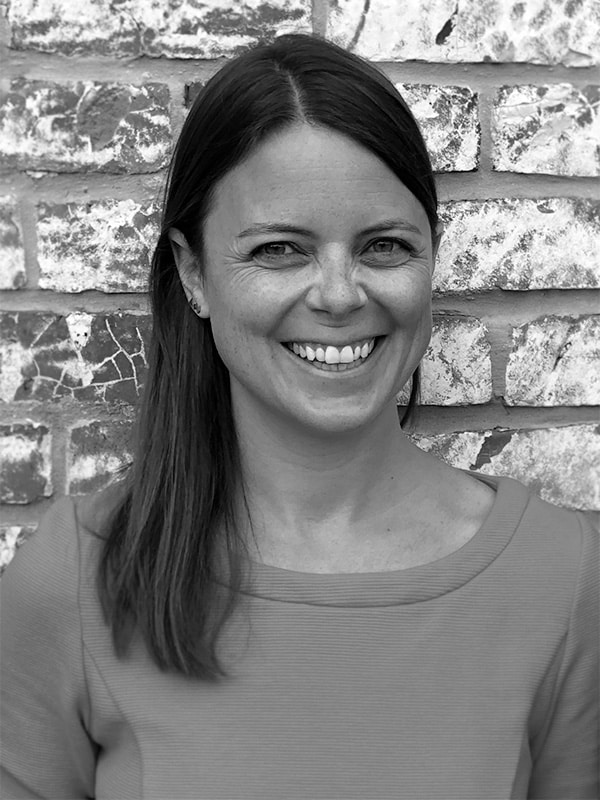
CEARA O’LEARY
University of Detroit Mercy
Bio
Ceara O’Leary, AIA, is a Professor of Practice at the University of Detroit Mercy School of Architecture, teaching public interest design and community development courses. She is an architect, planner and faculty partner with the Detroit Collaborative Design Center (DCDC), where she was Co-Executive Director from 2019-2023 and continues to lead collaborative community design and planning projects citywide. DCDC is a multidisciplinary nonprofit design office working with community partners across Detroit who traditionally lack access to design resources. Ceara joined the DCDC in 2012 as an Enterprise Rose Architectural Fellow. Her practice, research and teaching prioritize the community-engaged design of equitable neighborhood spaces. Ceara’s body of work includes the design of inclusive community spaces transforming underutilized assets, public realm and urban design centering local culture at the corridor and neighborhood scale, and planning projects at the intersection of policy and community resilience. She speaks nationally on community design and development teaching and practice. Ceara has also worked as an Assistant Professor in the School of Architecture at the University of Oregon, a Community Designer with bcWORKSHOP in the Lower Rio Grande Valley, and a Public Design Intern at the Gulf Coast Community Design Studio in Biloxi, Mississippi. Ceara graduated from the University of California, Berkeley with Masters degrees in Architecture and City & Regional Planning and she earned her undergraduate degree from Brown University.
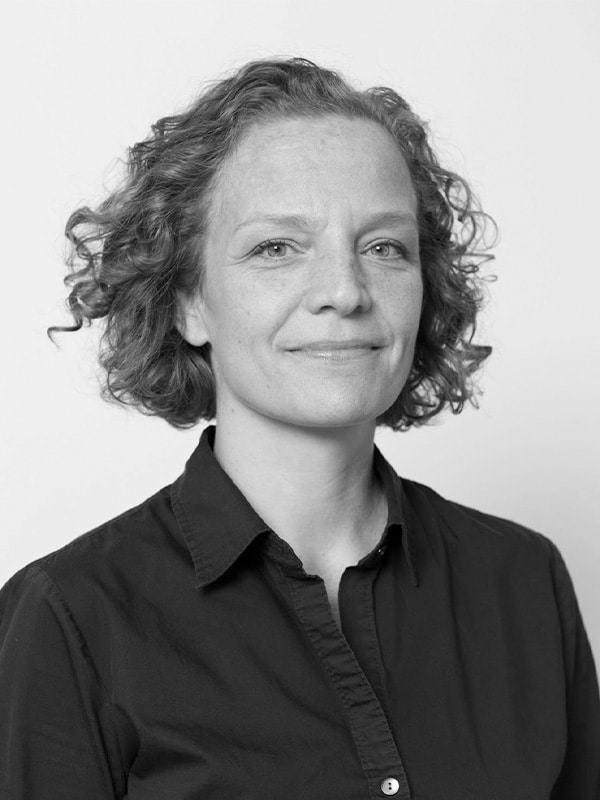
GUNDULA PROKSCH
University of Washington
Bio
Gundula Proksch is an Associate Professor of Architecture at the University of Washington in Seattle. She is the founding director of the Circular City and Living Systems Lab, an interdisciplinary research group investigating transformative strategies for sustainable urban futures. Her work on climate action focuses on the integration of food systems into the built environment, ranging from technical optimization to reduce the environmental footprint of urban food production to the impact of such systems on social and environmental justice in frontline communities.
Professor Proksch is the principal investigator of the National Science Foundation (NSF)-funded research projects CityFood and Aquaponics Optimization, which investigate the urban and systems integration of aquaponics alongside interdisciplinary consortia with international research partners located in the Netherlands, Sweden, Norway, Germany, Brazil, Turkey, Taiwan, and South Africa. She is also a co-principal investigator of an NSF EFRI ELiS grant on engineered living systems in the built environment. Her book Creating Urban Agricultural Systems: An Integrated Approach to Design (Routledge, 2016) is the first sourcebook on approaching urban agriculture from a systems perspective. Professor Proksch’s interdisciplinary research builds on her professional practice in Europe and the United States with architects David Chipperfield in London and Richard Meier, Stan Allen, and Roger Duffy of SOM in New York.

DEEPA RAMASWAMY
University of Houston
Bio
Deepa is an architect, historian, and Assistant Professor of Architecture and Urbanism at the University of Houston. Deepa’s research examines land, legal, and environmental histories with a focus on the regulatory systems, organizational practices, and financial instruments that shape the built environment. Deepa has a Ph.D. in Architecture from the Massachusetts Institute of Technology (MIT) and an MA from the Architectural Association (AA), London. Her current research projects include tracing the history of reclaimed lands along Mumbai’s coasts and examining the privatized public realm in postwar New York City. Deepa’s research has been supported by the Graham Foundation, Getty Research Institute, and the Canadian Center of Architecture. Her works have been published in Neoliberalism on the Ground, CLOG magazine, and Arris, among others. Before her doctoral studies, Deepa was a practicing architect in Chicago and Mumbai.

JAMES WASLEY
University of Wisconsin-Milwaukeee
Bio
Professor James Wasley is a director of the Institute for Ecological Design at the School of Architecture and Urban Planning at the University of Wisconsin- Milwaukee. He is a Past-President of the Society of Building Science Educators and a founding member and Past-President of the Wisconsin Green Building Alliance, now the Wisconsin Chapter of the USGBC.
From 2011-2014, while serving as department chair, Professor Wasley led the multi-institutional ‘Milwaukee’s Inner Harbor Project,’ dedicated to the economic redevelopment and ecological restoration of Milwaukee’s own industrial harbor. This three-year project, aimed at generating public discussion around the Harbor in celebration of the founding of UWM’s School of Freshwater Sciences, resulted in over sixty design studios, fourteen masters of architecture thesis projects and numerous other projects in courses ranging from civil engineering to landscape architecture at UW-Milwaukee, UW-Madison and the Illinois Institute of Technology. Professor Wasley’s own masterplan for water-related demonstration projects forming a gateway to the new School of Freshwater Sciences is slowly being built out.
In 2019, with co-P.I. Carol Miller, Center for Healthy Urban Waters, Wayne State University, Wasley ran a National Science Foundation Sustainable Urban Systems Workshop “Reimagining Water: Linking Sustainable Urban Water Systems in the Great Lakes Basin.” In 2021, with co-P.I. Fadi Masoud, Center for Landscape Research, University of Toronto, Wasley ran a Great Lakes Higher Education Consortium Workshop “Reimagining Water II: The Future of Green/ Blue Infrastructure in the Great Lakes Basin.”
These two workshops will be extended in the current Water Policy Fellowship, with the overall goal of creating a multi-disciplinary network of academics, government officials, NGO’s and design, engineering and construction professionals organized around promoting innovative green/ blue infrastructure design in the Great Lakes Basin.

KENNY H. WONG
University of Arizona
Bio
Kenny H. Wong, MArch, MURP, is a Lecturer in the College of Architecture, Planning, and Landscape Architecture at the University of Arizona. As part of its Drachman Institute he is coordinator of the Housing Equity Lab (HousEQ) and co-director of the Arizona Research Center for Housing Equity and Sustainability (ARCHES), co-located at UArizona and ASU. He carries experience in diverse facets of affordable housing design, production, and policy—from practice as housing advocate and multifamily designer to project analyst and policy researcher. His current work engages creative public engagement through the urban humanities and development of culturally relevant design and policy.
Kenny was previously the assistant director of design research at cityLAB UCLA, where his research explored connecting local educational agencies with workforce housing development and envisioning future scenarios of housing growth and equity in California. He serves as an appointee to the City of Tucson Commission on Equitable Housing and Development and a steering committee member of the interdisciplinary Urban Humanities Network. He is a graduate of the University of California, Los Angeles with a Master of Architecture and a Master of Urban and Regional Planning. He completed his Bachelor of Arts in Architecture at the University of California, Berkeley.
The cohort will present participating faculty with an extended training opportunity to expand the impact of their research and scholarship beyond the academy. After the workshop, cohort members will have up to three months of access to The OpEd Project’s Mentor-Editor network to get individualized feedback on their op-ed drafts to double their chances of publishing success. By the end of the training, cohort members are expected to complete the workshops and submit an op-ed for publication in a local, regional, or national newspaper.
The Academy for Public Scholarship on the Built Environment reflects the work of the 2023-2024 ACSA Research and Scholarship Committee who have been charged to expand the impact of scholarship on climate action in built environments.
2023–2024 ACSA Research & Scholarship Committee Members
- José Ibarra, University of Colorado Denver (Chair)
- Timothy O. Adekunle, University of Utah (TAD Board Member)
- Ian Caine, University of Texas at San Antonio
- Martha Campbell, RMI (ACSA Public Director)
- Shelby Doyle, Iowa State University (ACSA At-Large Director)
- José L.S. Gámez, University of North Carolina at Charlotte (ACSA Second Vice President)
- Shawhin Roudbari, University of Colorado Boulder (JAE Board Member)
- Staff: Eric W. Ellis, ACSA Senior Director of Operations and Programs

 Study Architecture
Study Architecture  ProPEL
ProPEL 


